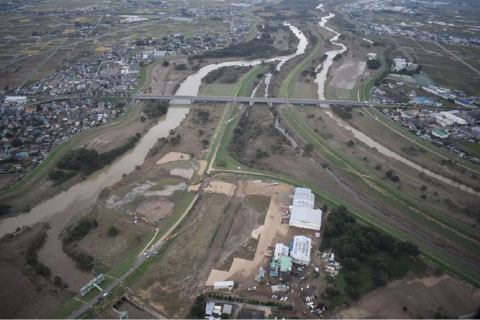With science and technology becoming more sophisticated and diversified in recent years, there are cases where lectures, practical training, and research at the Graduate School of Science and Engineering are difficult to conduct at the facilities typically used for majors and courses. In such cases, the use of larger facilities is necessary. For this reason, the university has the Library, Information Technology Center, Comprehensive Analysis Center for Science, Open Innovation Center, and International Institute for Resilient Society. These facilities are designed to facilitate efficient education and research conducted by students, graduate students, and faculty, to maintain a healthy research environment and prevent the release of hazardous substances into the surrounding environment, such as the treatment of waste fluids resulting from experimental research. In addition to improved efficiency and environmental considerations, our mental health is also essential in conducting graduate school exercises, experiments, and research. For this reason, the Health Center was established.
Library
The Library is a facility to provide information necessary for research and education at the university.
- Collected Materials:
- Books, magazines, CD-ROM/DVD, videos, laserdiscs, etc. Databases like SciFinder, electronic journals like Science Direct
- Services
-
- Reference Counter/Support Desk: Help desk support for how to find literature and how to use the Library
- ILL: Bibliographic copies, books, and other sources from other universities
- OPAC: Searching Saitama University library collections via the Internet
- Learning Commons: There are group study rooms and seminar rooms, space that students and teachers can use in a lively environment regardless of the types of their studies.
- Shared PCs:
- Shared PCs are available to access the Internet and write reports. Use personal laptops via wireless LAN
- Hours of opening:
- During class hours: 09: 00–21: 30 on weekdays; 09: 00–17: 00 on weekends and holidays Outside class hours: 09: 00–17: 00 on weekdays; closed on weekends and holidays (http://www.lib.saitama-u.ac.jp) You need to show your student ID when using the Library.
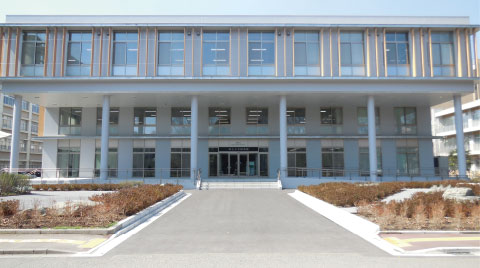
Health Center
The Health Center is available to help students and graduate students manage their health conditions. Maintaining and promoting physical and mental health is very important in engaging in practical, experimental, and research activities and enjoying fulfilling university life. For this reason, the Health Center offers regular health checkups and first aid treatment. It also provides health and mental health consultations. When you feel uneasy, when you are unable to detach yourself from emotional trouble, which affects practical, experimental, and research activities as well as human relations, or when you have insomnia or a loss of appetite, please don’t hesitate to come to the Health Center.- General affairs:
- Service hours: 09: 00–17: 00 on weekdays When you unexpectedly get injured or become sick on the campus, a doctor and nurse give you first aid treatment. If necessary, the Health Center introduces you to an appropriate medical institution.
- Health consultation (reservation required):
- Service hours: 10: 00–16: 00 on weekdays
- Mental Health Counseling by a specialist/counselor (reservation required):
- Service hours: 10: 00–16: 00 on weekdays
Information Technology Center
The Information Technology Center supports learning, education, and research through the development of IT infrastructure and the support of computer use. The Center develops and operates the campus-wide network (direct optical network, wireless LAN covering almost the entire campus, and high-speed, high-capacity 10Gbps access to the Internet), various information services via data centers (e-mails and websites), the campus cloud using virtualization technology, and PC terminal classrooms for information media education. The Center also supports the shared service of supercomputers at the University of Tokyo. The Center is also researching advanced information infrastructure technologies and related applications to offer more advanced IT infrastructure and services.
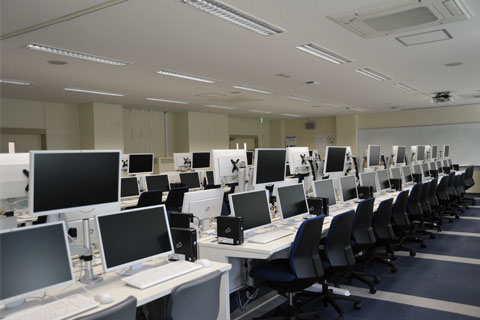
Comprehensive Analysis Center for Science
The Comprehensive Analysis Center for Science provides strong support for education and research in all areas of science and engineering at Saitama University. The Center is equipped with a variety of high-performance instruments for analysis of material structures and properties. The Center adequately maintains and manages the valuable assets and effectively operates them using a web-based reservation system, a campus-wide shared service that many teaching staff and students appreciate. Under the cooperation of the Comprehensive Technology Support Center, this Center also supports a variety of education and research, including the maintenance and management of radioisotope research laboratory and laboratory animal breeding rooms, and the supply of liquid nitrogen, analysis requested from inside and outside the university, the management of laboratory chemicals, the recovery of inorganic/organic liquid waste released after experiments, and the monitoring of wastewater from the campus. In addition to the above, the Center provides information about scientific analysis in seminars on basic to cutting-edge analytical instruments by inviting lecturers from inside and outside the university and private companies.
- Recent Seminars
-
- Tea in Thailand
- Current Status and Future Trends of the Japanese Tea Industry, and Situation of Tea in Overseas Tea Production Centers
- Holographic
- CRISPR/Cas9 Systems Seminar
- Mettler Toledo Seminar
- Fifty Years of Search for Mosses, Insect Odors, and Bioactive Substances
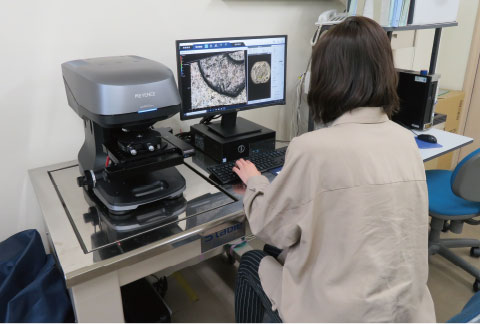
Open Innovation Center
As a liaison office for industry-academia-government collaboration, the Open Innovation Center is promoting activities to feed back research results of universities to society. The Center consists of two divisions: the “Industry-Academia-Government Collaboration Promotion Division” and the “Intellectual Property Division.” Specifically, the Center is providing technical consulting services to external companies, supporting the implementation of collaborative research, introducing our research seeds, and managing and utilizing the intellectual property.
This Center serves as the secretariat of the “Saitama University Industry-Academia-Government Collaboration Council.” Under the cooperation of local economic organizations and industry-academia-government collaboration support organizations, the Council is involved in various activities including the following: 1) industry-academia exchange events such as “Techno Cafe;” 2) “Study Group Activities,” which are expected to develop into collaborative research in the future; 3) the publication of “Newsletter” and the distribution of “Information Mails” for information distribution. Through these activities, the Open Innovation Center aims to promote open innovation in companies, contributing to the revitalization of a wide range of industries, including the promotion of local industries.
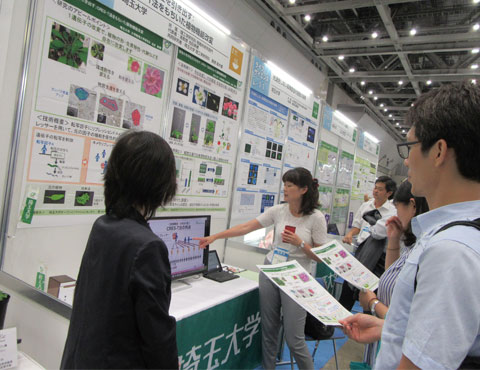
International Institute for Resilient Society
A research center that integrates humanities and science to create a real resilience society
The International Institute for Resilient Society was established in 2014 as a research center at Saitama University that integrates humanities and science. The Center aims to pursue research in various fields needed to create a real resilient society including the following: research on the maintenance and management of aging social infrastructure, research on disaster prevention and mitigation in response to the increasing number of earthquakes, tsunamis, floods, and landslide disasters around the world, and research on human behavior before and after the occurrence of risks as well as public awareness and policy reforms for the society to recover quickly from disasters. The Center also aims to feed back the results to the local and international communities.
For more information, visit the International Institute for Resilient Society website.
